Girton College
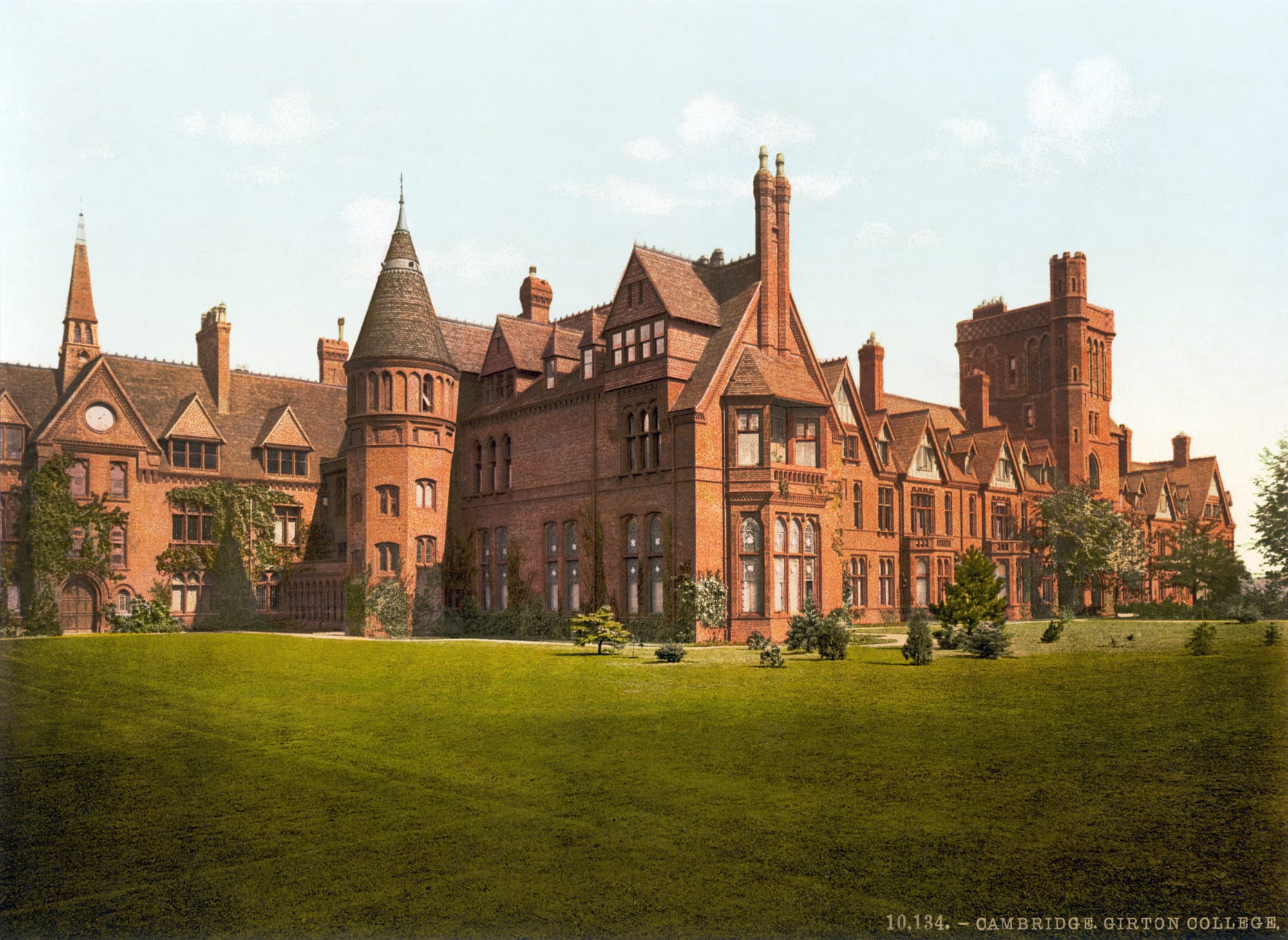
The three universities I applied to - Durham, Oxford and Cambridge - are collegiate universities. It means that when you apply to the university and receive the offer of a place, you have to wait longer to get an offer from one of the universiy's colleges before you can finally accept and be admitted as a student.
If you don't choose your preferred college or colleges, your file is circulated around and eventually a college will make you an offer. Or you can enter up to two colleges as first and second choices on your initial application. This gets tricky, since some colleges won't accept students who don't make them first choice, unless the student is an outstanding candidate with exceptionally high grades plus an excellent assessment result from their interview.
At an undergraduate level your college becomes your community, a second home where you live, study and eat. Each college has student accommodation, a dining hall, a library, sports and fitness facilities, and a range of recreational and hobbies groups and sports teams. It provides counselling and pastoral support to both undergraduate and postgraduate students and is responsible for collecting all student fees, including the university "composition fee" (tuition). It will have its own nurses, a health and wellbeing director, perhaps a financial director as well as an accountant, and a catering manager, porters......... But I'm getting ahead of myself. I didn't find all that out until a few days later. Here is the college library at Girton:
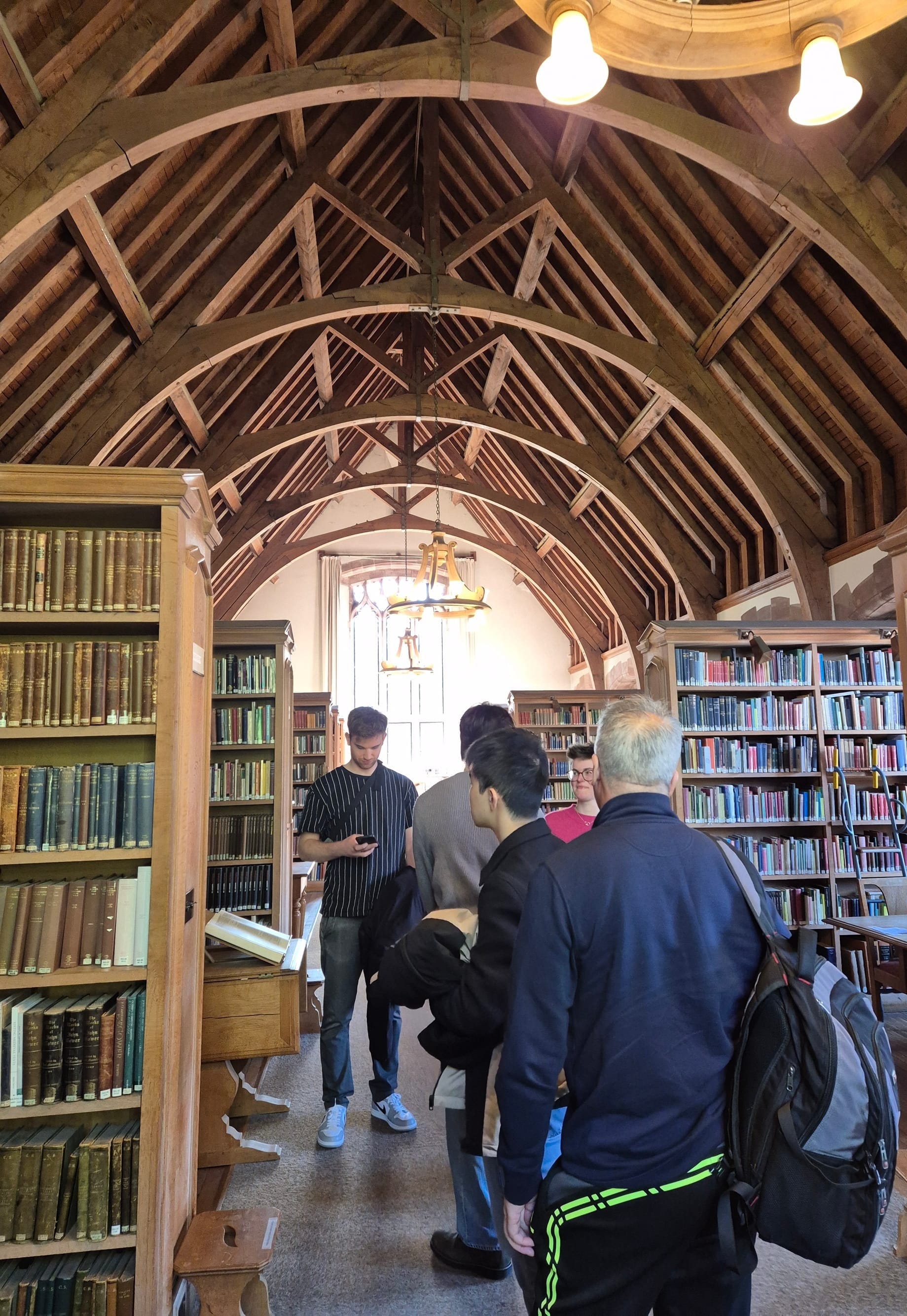
For postgraduate students like me, academic life centres more strongly around my department, the Faculty of Music, and we are "living out" since my college did not have enough couples accommodation available for us to get a college flat. But for me the college is still the first place to go for all administrative, pastoral and financial concerns.
So in short you cannot attend the university without being a college member. You can't change colleges. There is no mechanism in place to allow such a change. Your college remains yours for the rest of your life.
In Cambridge there are thirty-one colleges, each with a different personality, with different academic strengths and preferences for selecting different student types. Each one does things its own way, and there might be more or less financial aid available, more or less support, and different traditions.
The "old" colleges were founded between 1284 and 1596; the "new" colleges were founded between 1800 and 1977. Some colleges are rich, some are poor, and that means a difference in number and amount of the scholarship awards and bursaries offered to their student members. There are very popular colleges, difficult to get into, often picking students based on proven excellence in academics or athletics, humanities or science. Such sought-after colleges will not accept students who list them as second choices. The less popular colleges are easier to get into.
When I applied to Oxford, I left my choice of college blank and was picked by a very good college for music, St. Hilda's. At Cambridge I put Christ's (one of the elite, founded in 1505) as first choice and Girton ("friendly and welcoming to all") as second. Both colleges are strong musically, and Girton College resonates with my generation as it was the first insitution in the UK (founded in 1869) offering university-level education to women. My college offer came from Girton, which we visited for the first time this week. I chose Girton because of its history as well as its music. It was the first institution in the UK to admit women to university-level courses. It's Victorian building is based just outside Cambridge, well-removed from the all-male colleges in the centre of town. After its founding (by the early feminists Emily Davies and Barbara Bodichon), there were regular requests to the university to grant its graduates a degree, since they were taught the same courses by the same professors who taught at the men's colleges, and they took and passed the same exams. The answer was always "No degrees for women!" Their response was to build the formal dining hall that is still the largest dining hall of any of the Cambridge colleges, as if to say "There may be only 20 women students here now, but we are here to stay! We're not going anywhere, and our numbers are going to fill this hall one day, you'll see!"
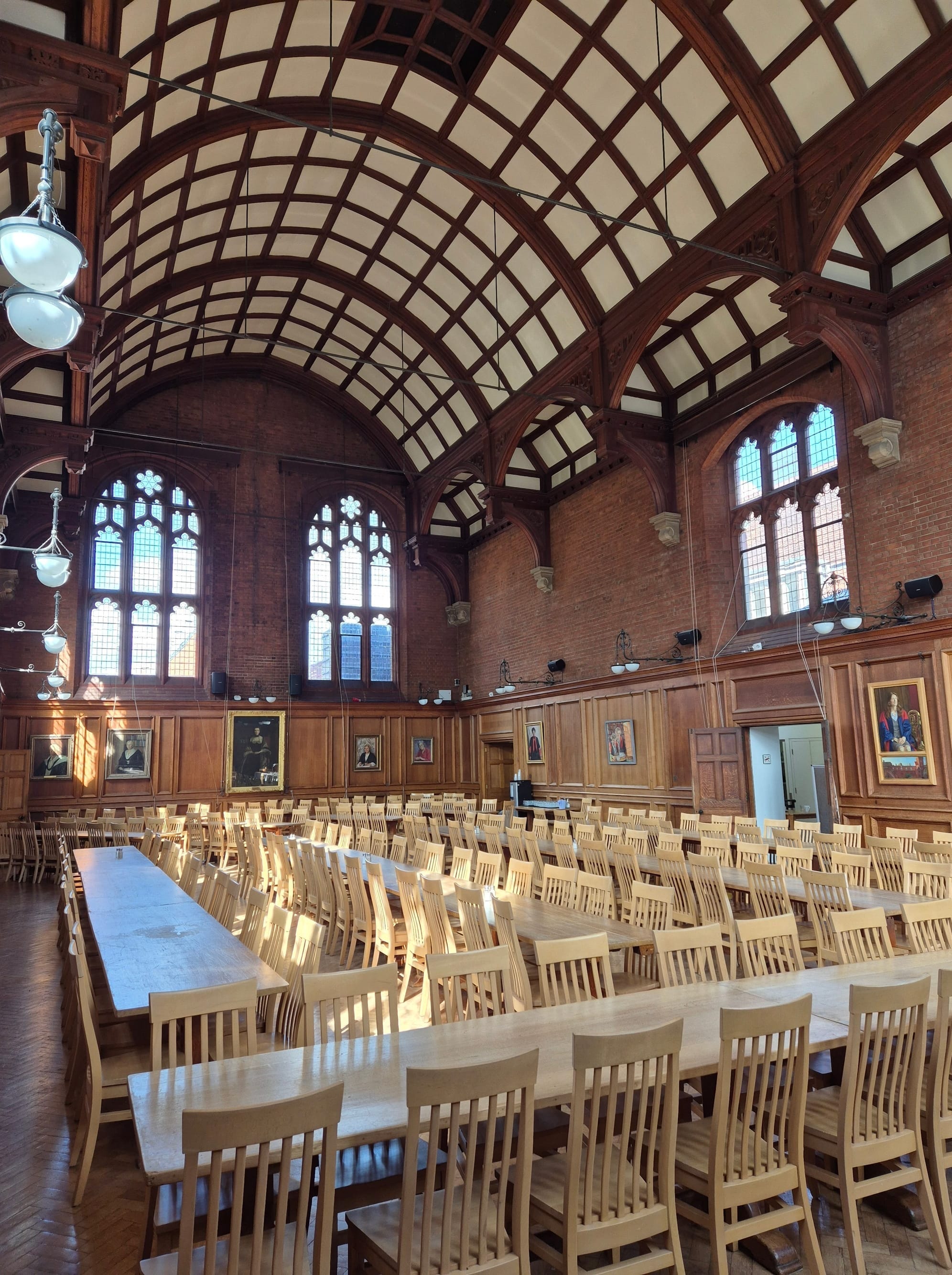
Cambridge University didn't vote to award degrees to women until December 1947, with the first female students from Girton and the other women's college, Newnham, graduating with Cambridge University degrees in November 1948.
After leaving Girton we bussed to Grantchester, where we'll be moving into a small house on October 1st (first offical day of term and also my birthday. A big birthday with a 0 following an 8!) We decided to walk back into Cambridge. There is a footpath over Grantchester Meadows. Very pretty:
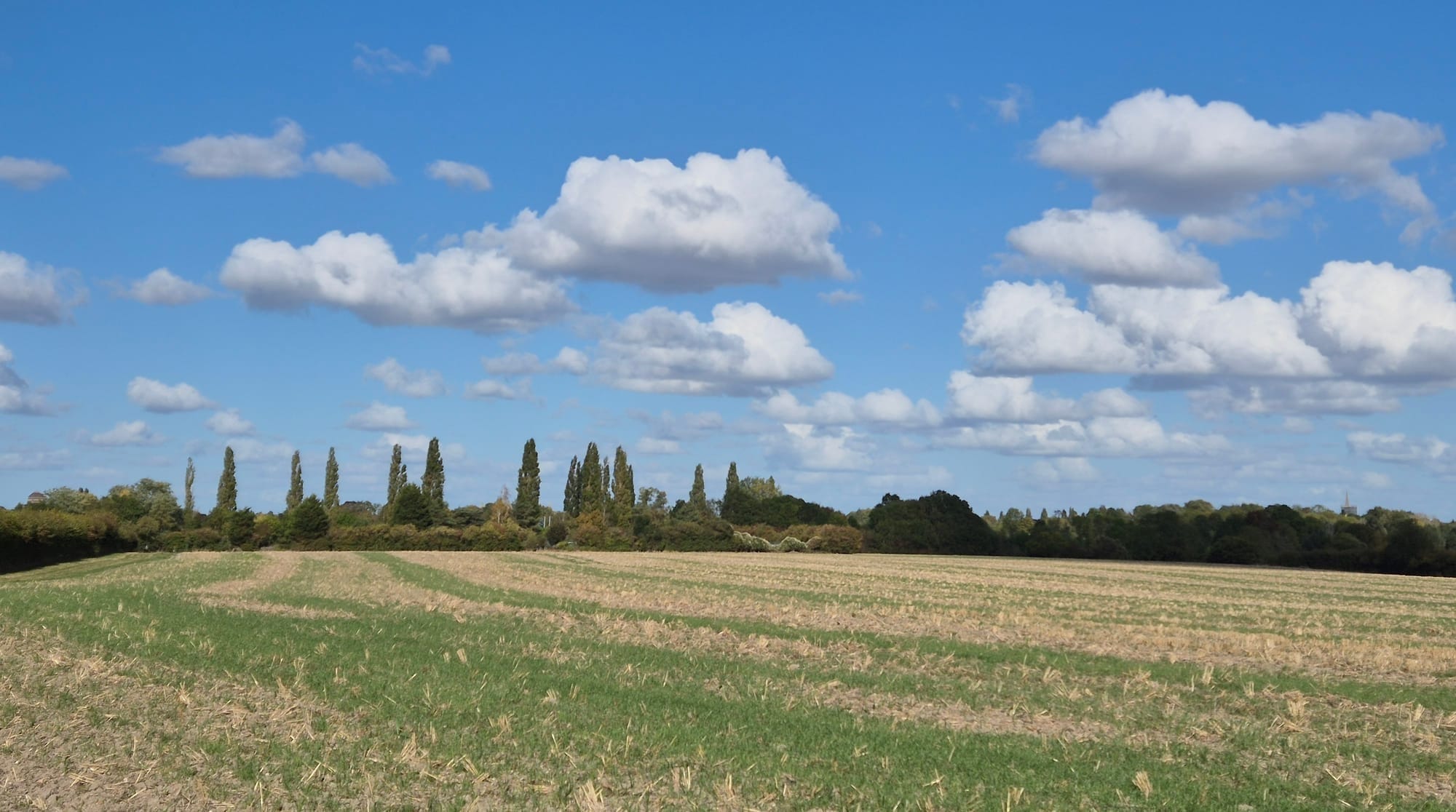
So far, I am feeling a great sense of peace, relief and simple rightness to be back home again after so long away. Part of this is due to staying in Fulham, visiting my old house and finally confronting the events that led to me running away in 1975. I accepted the ending as final for the first time, really, and this is what has given me peace.
One thing I much appreciated about the walk across the Meadows was the network of footpaths that gives right of way to walkers, cyclists and horses. It's a very English thing, that the fact of certain footpaths being used for centuries is enough to make them unchallengeable rights of way, even across private land, and folk have the right to tread these footpaths forever - at least for however long "ever" can endure in these unsettled times:
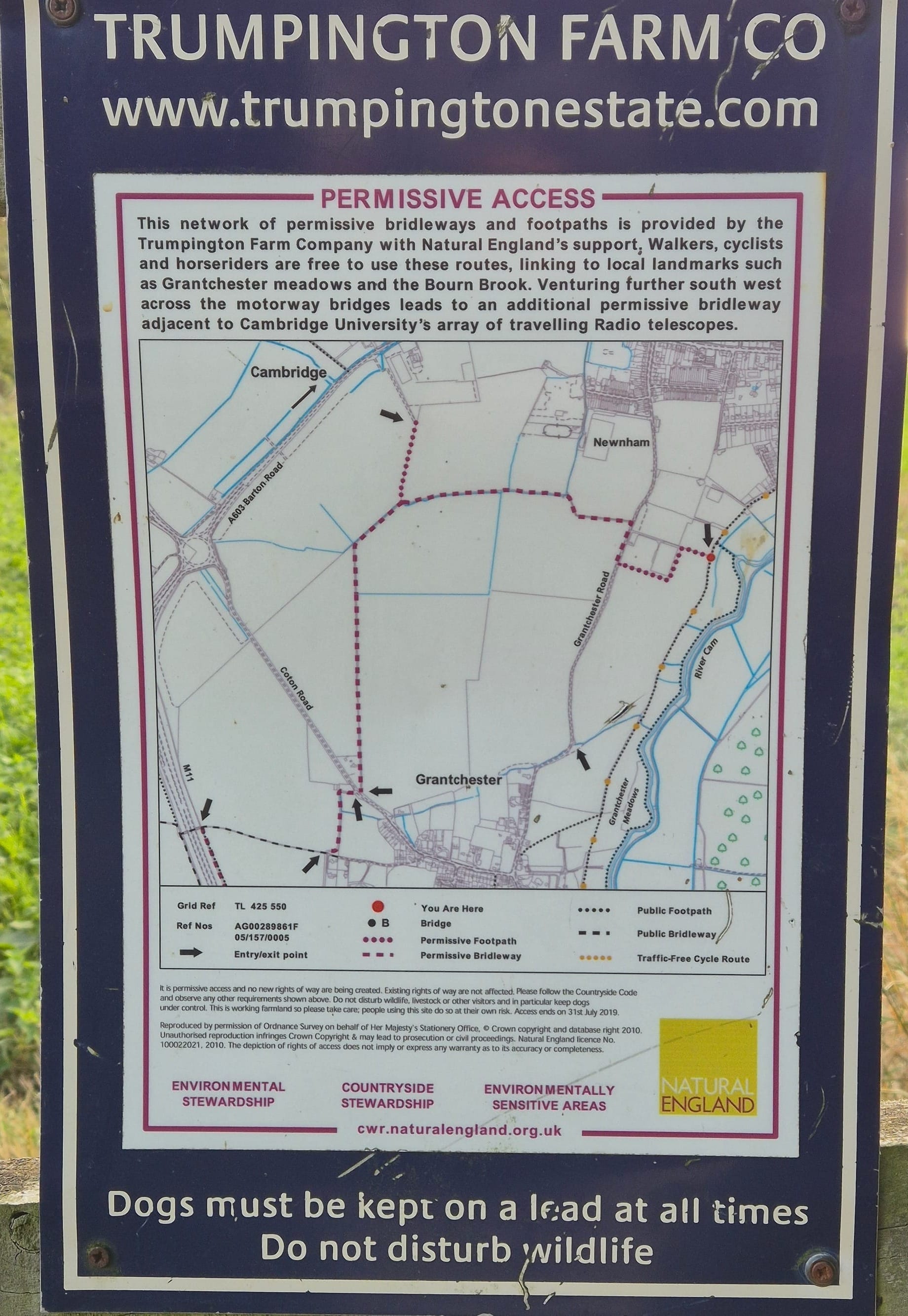
We got back into Cambridge, and I went to my new British bank, Lloyds, to activiate my new British bank card. Lloyds, Cambridge, looked different from Scotiabank, Lynn Valley Centre. The outside was quite different. Notice all the electric scooters in a row:
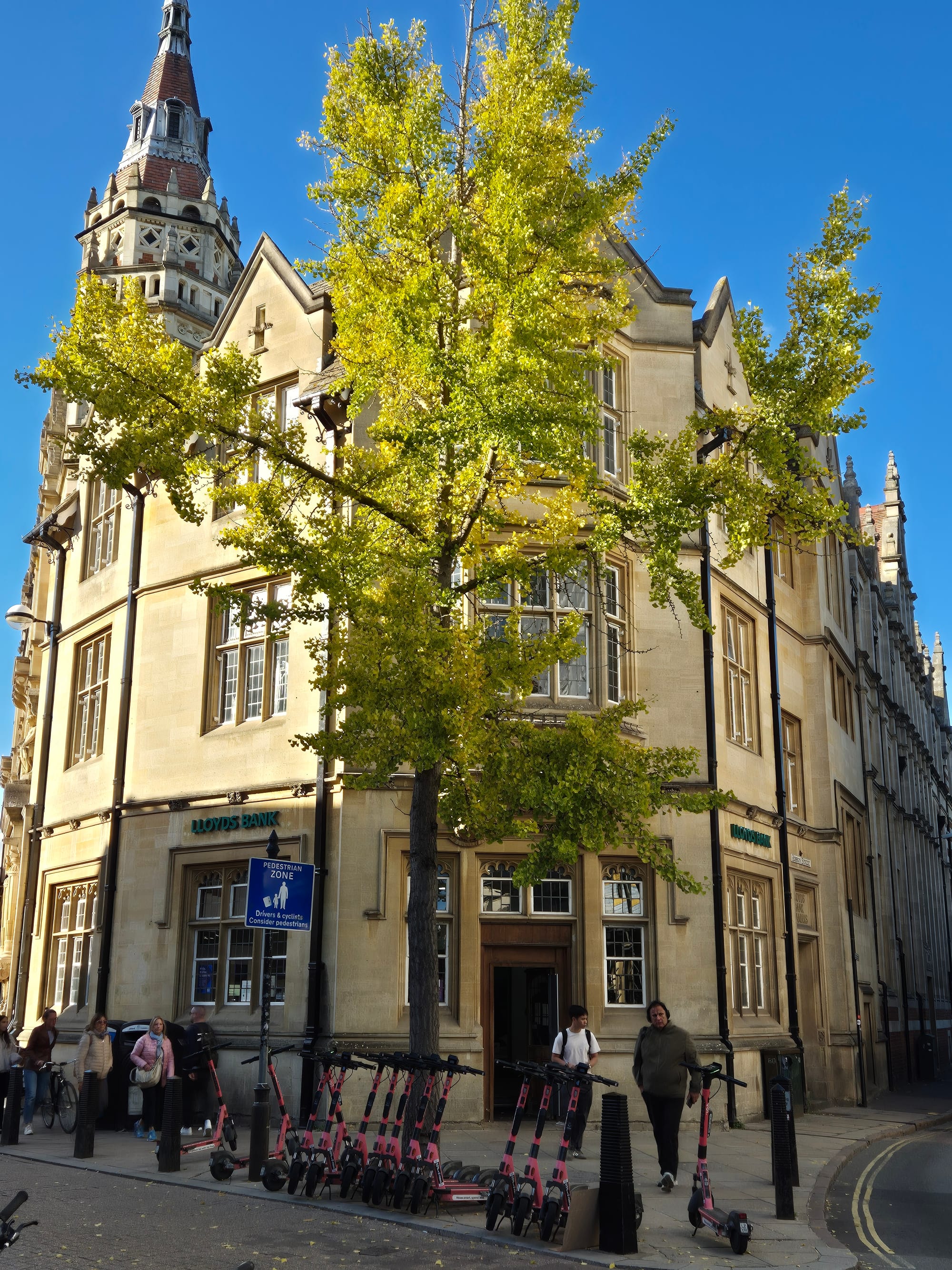
Cambridge is not a car city. It's a walking, cycling city. Honestly, it is a very welcome change to be free of the unremitting noise and pollution from speeding cars and motorbikes, trucks and police-car sirens, that fractured daily life in South Granville. Not being in a car-centric city again is another cause for relief.
We went into the lobby of the bank - definitely not Scotiabank!
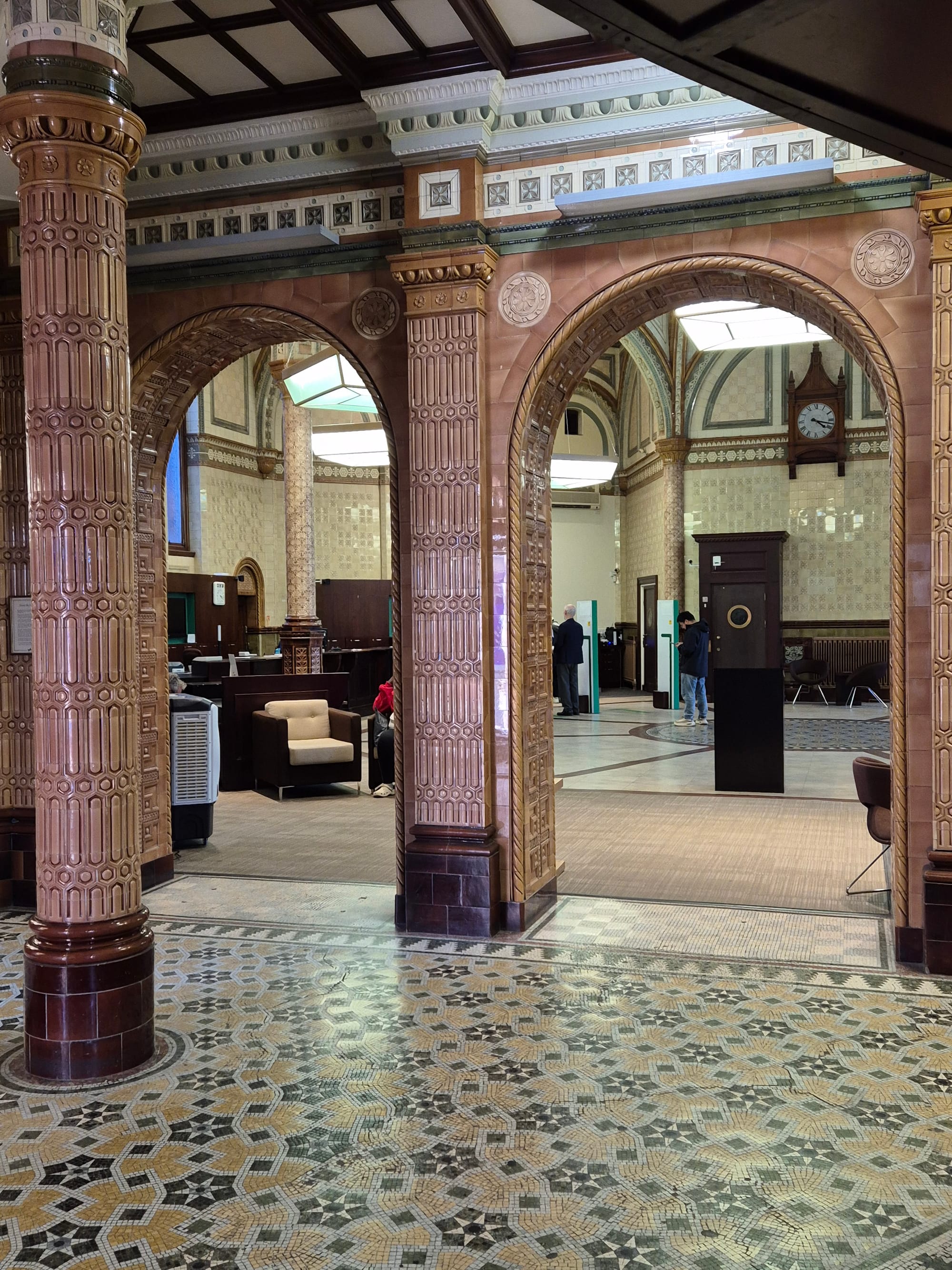
But the interior of the bank - wow! See the woman at the tall desk in the middle of the entrance in the picture below? She stops everyone coming in, and either deals with your request, helps you at the cash machines, directs you past her desk to the correct teller, or asks you to sit down in reception while she texts for an account manager, who comes out with a laptop and fixes things for you right there and then.
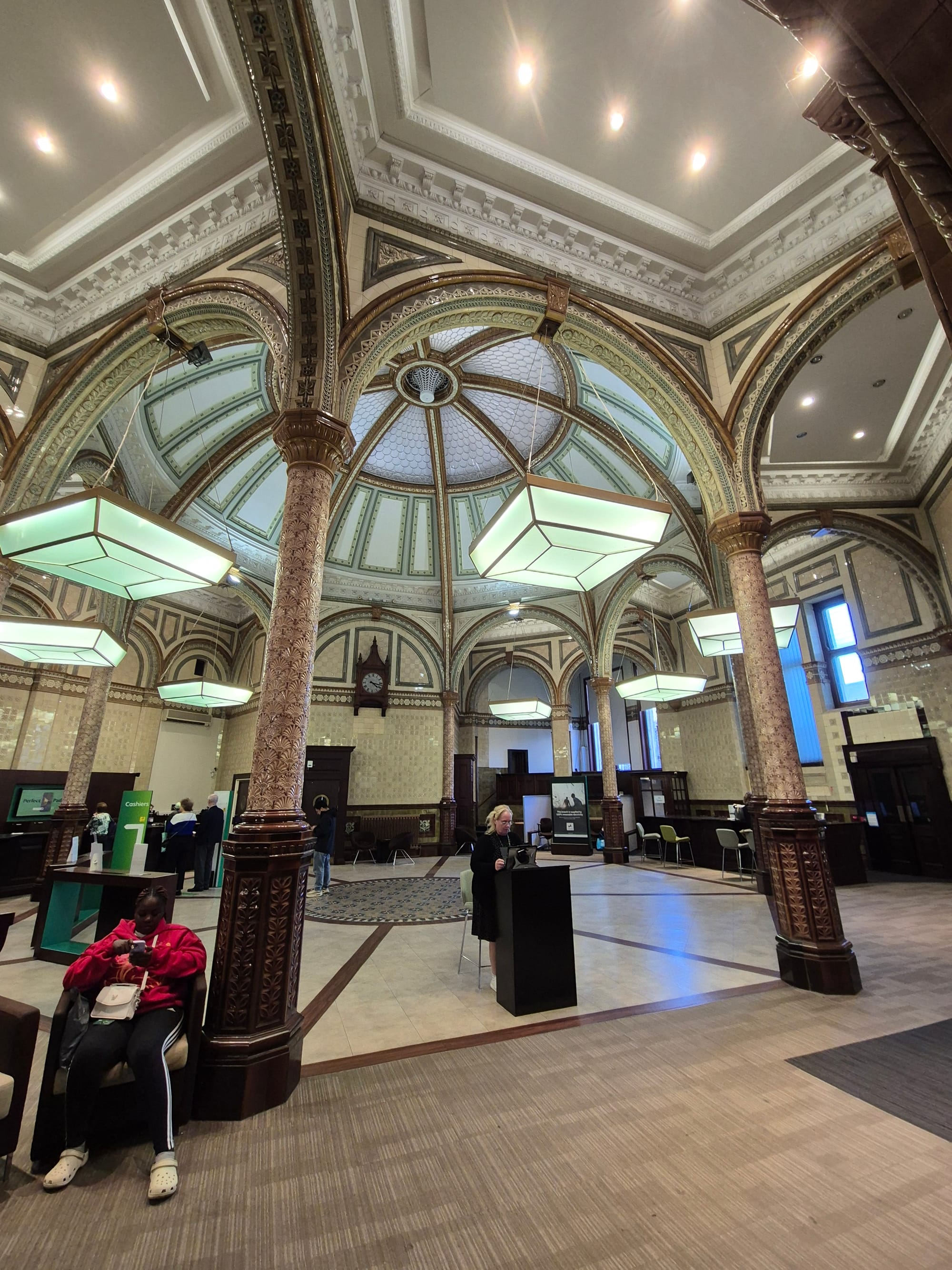
It's late now. I have more to tell about Cambridge and the university, but next time I want to show you some more photographs from Fulham and finish up the lovely unfolding of the past that happened there........... and don't forget Hugh Grant!!